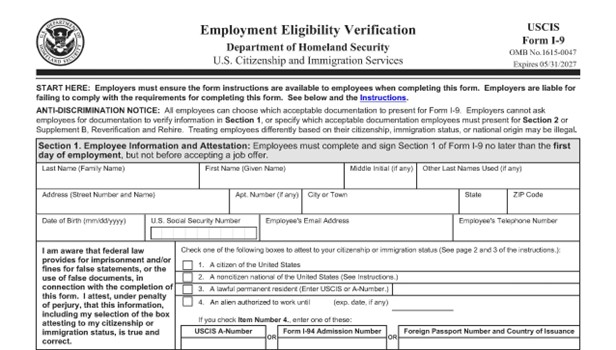This case illustrates why a HIPAA Security Officer must have administrative rights access to their organization’s IT infrastructure. Although the compliance officer may not know what to do with this access, it is required so you have control over your network. Should the need arise to replace your IT administrator or IT vendor, you won’t be held hostage. Also, this demonstrates the necessity to check references and BEFORE you terminate someone, be sure their access has been removed.
In the incident below, a fired IT administrator used his elevated access to disable firewalls, delete company data, remove email security filters, and block the business from its own systems—crippling operations. If only a single IT employee holds full administrative control, the organization becomes vulnerable to sabotage, insider threats, and operational paralysis if that person is unavailable, leaves unexpectedly, or acts maliciously.
For HIPAA-regulated entities, losing access to security systems or audit logs can also prevent breach detection and reporting, creating compliance violations and potential fines. A HIPAA Security Officer with administrative rights ensures independent oversight, immediate access to critical systems, and the ability to secure PHI systems without relying solely on IT staff—safeguarding both security and compliance.
If you need assistance with IT services, we work with some of the best in the industry. Use the Contact Us page and we will send our recommendations.
5 Felony Charges for Palm Coast IT Administrator Accused of Launching Cyber Attack on His Company After He’s Fired
A 41-year-old resident of Palm Coast was arrested on five felony charges following a Florida Department of Law Enforcement investigation that found him to have allegedly carried out a cyber-attack on his company’s computer infrastructure in retaliation for the company firing him. The attack crippled some of the company’s functions.
“Dude I think I got my company in a choke hold,” the father of two young children, is alleged to have written in a message to someone after the cyber-attack.
The Spice and Tea Exchange, an online and in-store retailer originally founded in St. Augustine and based in Palm Harbor, hired an IT System Administrator in mid-October 2024. (The FDLE refers to it as The Spice and Tea Company.) He was fired last Jan. 14. “Within minutes, the company’s firewall, E-mail, and physical security was infiltrated,” FDLE’s warrant states, resulting “in completed deletion of company data.”
A human resources executive at the company told the FDLE investigator that while his position was being eliminated, he had “displayed very concerning behaviors while employed,” such as having a short fuse. The day of the firing he was working from home. The HR executive called him at noon to let him know he was fired. The conversation lasted just under 10 minutes.
According to the warrant, he “made several threatening statements prior to terminating the call. For one, [he] had stated ‘your company is not prepared for what is coming your way.’”
Almost as soon as he was fired the company would have disconnected him from its firewall and restricted access. That was to be done while the HR executive was still on the phone with him. But in what appeared to have been a movie-like race between IT employees, he was a step ahead of his ex-IT colleague at the Spice and Tea Exchange. He’d logged into the system at the same time that his colleague was racing to restrict access. He “overtook” him and the entirety of the business’ email access. The company “immediately lost access to the company firewall and emails,” the warrant states. He removed the firewall and obstructed business “continuity.”
He’d left one of his company laptops at the office. His colleague opened it–there was no expectation of privacy with a company laptop–and noticed that had his logon to his Chrome and Gmail accounts was automatic, and that it was syncing his other devices with his work computer, a violation of company policy. Within an hour or so of his firing, his history showed he had searched for “Florida Unemployment” and “Palm Coast Lawyers.”
The colleague also discovered that an email filtering service blocking spam and malware had been removed, requiring 3,800 emails to be manually approved. The company was no longer able to log into its own firewall and eventually learned from the Sisco Meraki Company, which provided the firewall data for the Exchange, that the company was deleted from Meraki’s database. So, there were no logs of the attack he allegedly orchestrated.
FDLE confirmed that the last user to make changes to the account had a username of his first initial and last name. FDLE also subpoenaed information from Google and was informed by Charter Communications of further data that led to his house in Palm Coast. Circuit Judge Chris France signed a search warrant, which was served on April 25.
He acknowledged his role when he was IT administrator but denied accessing the firewall.
France signed the FDLE warrant for his arrest on July 7. On Wednesday, he was driving his vehicle on State Road 11 in Flagler County when he was pulled over by a Flagler County Sheriff’s deputy, arrested, and taken to jail, where he was booked and soon released on $25,000 bond.
He faces three charges of computer fraud, a charge of tampering with computer intellectual property and a charge of unlawful use of a two-way communication device. Four of the charges are third-degree felonies, each with a maximum penalty of five years in prison. One of the charges is a second-degree felony, with a 15-year maximum if convicted.










